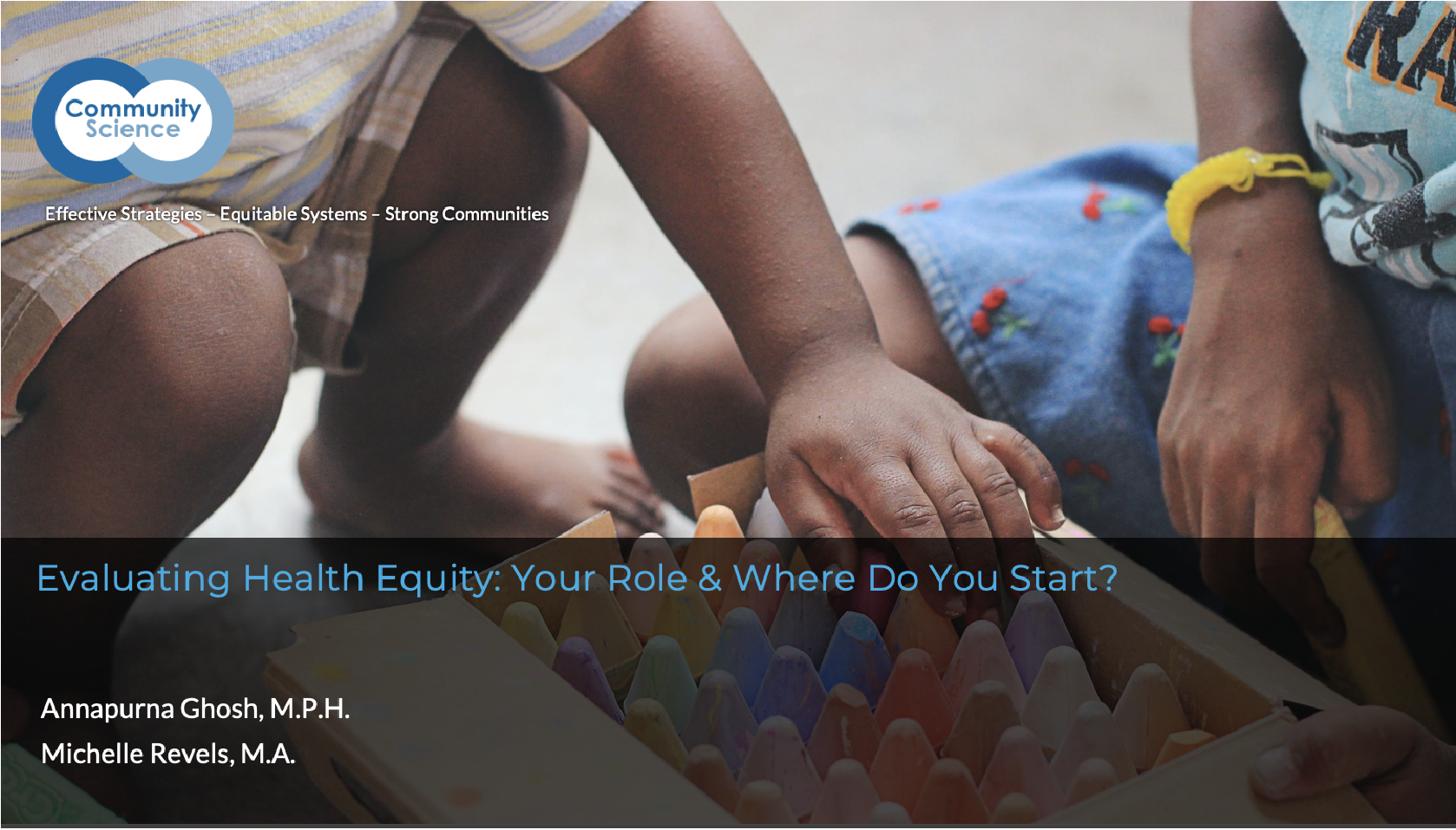Too often, evaluators are asked to assess the effectiveness of strategies without exploring inequities in the system, structural injustices, and power dynamics that affect outcomes. Evaluators have a key role in addressing health inequities. Beginning from the planning phase of evaluation and progressing through the phase of interpreting findings, you can use your skills to increase health equity by examining structural racism that has led to health inequities. By challenging assumptions, evaluators can change the narrative around what works and why when assessing program effectiveness. One step is to ask questions during the evaluation, such as: Who is the strategy working for, and who is it not working for? What conditions are needed to be successful? What capacities are needed? What power dynamics are affecting the outcomes? Evaluators need to ask these questions and others in order to make the systems changes to improve health inequities
In this webinar, Annapurna Ghosh and Michelle Revels of Community Science’s Health Equity Practice Area discuss how to plan and design an evaluation that includes guidance on addressing the root causes of health disparities and guidance on how to address some common challenges that arise.
Your Hosts

Annapurna Ghosh
Managing Associate
Community Science
Annapurna has extensive experience working with public health programs, community coalitions, and statewide systems using a participatory evaluation approach in partnership with clients, programs, and community members to elicit meaningful information to inform their priorities. Ms. Ghosh provides evaluation, data collection, and technical assistance services for a range of public health programs with a focus on substance use disorders, HIV, and chronic diseases. In an effort to make concepts more actionable, Ms. Ghosh has been working on developing tip sheets that offer practical guidance to evaluators who aim to implement content from the guides that Community Science developed in collaboration with the W.K. Kellogg Foundation, Doing Evaluation in Service of Racial Equity. She recently wrote a blog piece that can be found on the Community Science website, titled What Evaluators Mean When They Talk About ‘Lived Experience’.

Michelle Revels
Senior Associate
Community Science
Michelle brings extensive experience in research and evaluation design and works on a range of policy analysis, program evaluation, and health communication projects. As a skilled mixed-methods researcher, Michelle designs evaluation studies aimed at improving health and health equity for racial, ethnic and economically disadvantaged communities. She also has extensive experience developing logic models and is a skilled trainer in focus group research, qualitative data analysis, and program evaluation. Ms. Revels currently leads the evaluation of several health projects, including, monitoring and evaluation support for the Office of Minority Health’s Think Cultural Health initiative and the evidence-base review of grant applications for the AmeriCorps State and National Program.

